
We love our pets today more than ever before. Our culture obsesses over dog and cat videos on social media, memes with cats in them, etc. Some people seem to value animals’ lives more than other human beings, and will go to great lengths make sure their pet is more well taken care of than they are. (There’s nothing wrong with that; there’s plenty of reason to love pets. They’re our loving, loyal, cute, funny, and furry best friends/family members. Life wouldn’t be as bearable without them.)
But, did you know that Fido and Fluffy wreak havoc on your indoor air quality and your HVAC system?
If you have a dog or cat, obviously you know, they shed. To the naked eye, it looks like they’re only shedding loose fur. As we all know, dog and cat hair in and of itself is a pollutant that causes allergic reactions. Dog/cat fur is also detrimental to HVAC equipment. The loose hairs get airborne and get sucked into your returns. While your air filter catches a good bit of them, if you have multiple pets or do not have a good quality filter, some hairs can make it through and end up getting spread around your home through your ducts. Hair can also accumulate on your blower and coils, causing damages, leaks, and lack of efficiency.
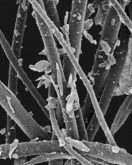
But, like a Transformer, there is more than meets the eye. When your furry friends go outside, all sorts of dirt, pollutants, and allergens stick to their fur and paws, and they bring all of that nasty stuff in with them, tracking it on your floors and releasing it into the air when they shed. Your pets also release dead skin cells and organic matter as they shed, otherwise known as dander, which breaks down and causes those unpleasant pet odors that your HVAC system spreads.
While your air filter traps microscopic particles, the average Walmart-bought filter is designed to catch roughly 80 percent of particles smaller than 3 microns and only 25 percent of particles measuring 3-10 microns. Pet dander measures on average anywhere from 2.5 to 10 microns. Even the pricier filters aren’t impermeable.
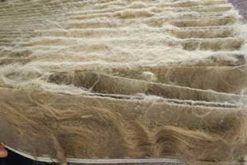
We mentioned your pets tracking pollutants in on your floors earlier. The type of flooring you have can also play a role in affecting your home’s air quality. If you have carpet flooring and pets, you probably have taken notice to how much hair is in your vacuum when you go to dump the dirt out. Hair, pollen, pet dander, dust, and other organic matter sticks to the strands in your carpet, which makes your carpet a prime breeding ground for microscopic critters like dust mites.
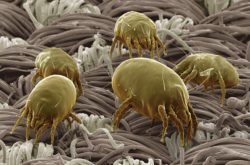
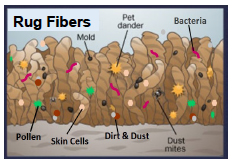
The junk that sticks to your carpet can be made airborne by your pets playing, running, and walking, as well as by your own moving about inside your home. Just like with hair, pollutants that don’t get trapped in your filter accumulate on coils, the blower, and other components, causing damages and leaks in your HVAC system, and are spread via being blown out of your ducts.
Not only can little Fido affect your indoor HVAC equipment, but dogs can also damage and ruin your outdoor condensing units/heat pumps. Your system’s outdoor condenser contains condenser coils that are protected by metal fins and grates on the outside cover. Dogs pee to mark their territory, and if you don’t watch where Spot is doing his business, you may be giving us more business sooner than later.
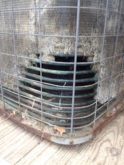
Dog urine contains uric acid. Uric acid, while not harmfully corrosive by itself, is an oxidizer. It reacts with oxygen, causing metal to rust over time. As metal rusts, it weakens and becomes brittle, eventually wearing away. Dog urine ruins a condenser by rusting the covering over the coils. It gets inside the grate and causes the fins and condenser coils to rust, which leads to the eventual death of a system.
Now here are some steps you can take to properly care for your pet, your air quality, and your HVAC system all at the same time.